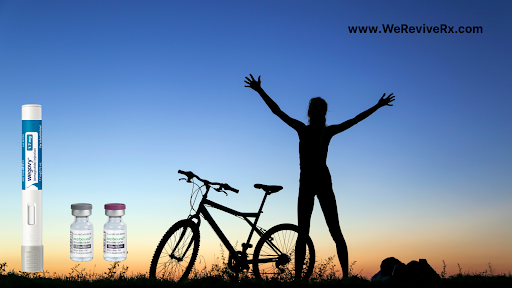How to Prevent Weight Regain After Stopping Wegovy or Zepbound
How to Prevent Weight Regain After Stopping Wegovy or Zepbound

Introduction
Medications like Wegovy and Zepbound can help you lose a significant amount of weight—but what happens after you stop?
Many patients are concerned about regaining the weight they worked so hard to lose. Unfortunately, weight regain is common without a plan. But the good news is: with the right strategy, you can maintain your results.
In this guide, we’ll cover why weight regain happens, who’s most at risk, and what you can do to keep the weight off after stopping GLP-1 medications.
Why Weight Regain Happens
When you stop taking Wegovy or Zepbound, your body begins to:
- Feel hungrier (appetite suppression fades)
- Digest food faster again
- Burn fewer calories if your weight decreases without maintaining muscle
- Return to old patterns unless new habits are in place

Who’s Most at Risk of Regain?

- Relied solely on medication without building lifestyle habits
- Didn’t adjust their diet or exercise routine
- Stopped abruptly without a maintenance plan
- Have high levels of emotional or binge eating
- Lost muscle during weight loss due to low protein intake or inactivity
How to Keep the Weight Off After Stopping
 1. Strengthen Your Habits Before You Stop
1. Strengthen Your Habits Before You Stop
- Track your meals using an app like MyFitnessPal or Cronometer
- Maintain consistent protein intake (aim for 80–120g/day)
- Practice mindful eating: slow down, eat until 80% full
- Exercise regularly, including resistance training 2–3x/week

 2. Ask Your Doctor About a Maintenance Plan
2. Ask Your Doctor About a Maintenance Plan
- Consider staying on a lower dose for weight maintenance
- Explore switching to a different medication like Contrave or Qsymia
- Create a follow-up schedule with weigh-ins, labs, and coaching

 3. Focus on Muscle, Not Just the Scale
3. Focus on Muscle, Not Just the Scale
- Muscle burns more calories—even at rest
- Losing weight without strength training increases the risk of fat regain
- Incorporate bodyweight workouts, light weights, or resistance bands

 4. Create a Post-Medication Meal Plan
4. Create a Post-Medication Meal Plan
Stick to the basics:
High-volume, low-calorie meals (veggies, lean proteins)
3 meals + 1–2 snacks to prevent over-hunger
Stay hydrated: 80–100 oz water/day
Include occasional treats to avoid binge-restrict cycles
 5. Continue Accountability
5. Continue Accountability
- Use a weight-tracking app (weekly check-ins)
- Join a support group or virtual coaching program
- Schedule monthly “wellness” check-ins with your provider or nutritionist

Signs You May Benefit from Staying on Medication Longer
- Cravings come back fast when you reduce your dose
- You feel out of control with food
- You haven’t yet built consistent lifestyle routines
- You still have weight-related health issues (e.g., high blood pressure, prediabetes)
For many people, GLP-1s are not short-term fixes—they’re part of a long-term care plan.
Final Thoughts
Stopping Wegovy or Zepbound doesn’t mean losing your progress—but it does require intentional effort to maintain results. The most successful patients build strong routines, stay active, and monitor their habits closely after coming off medication.






